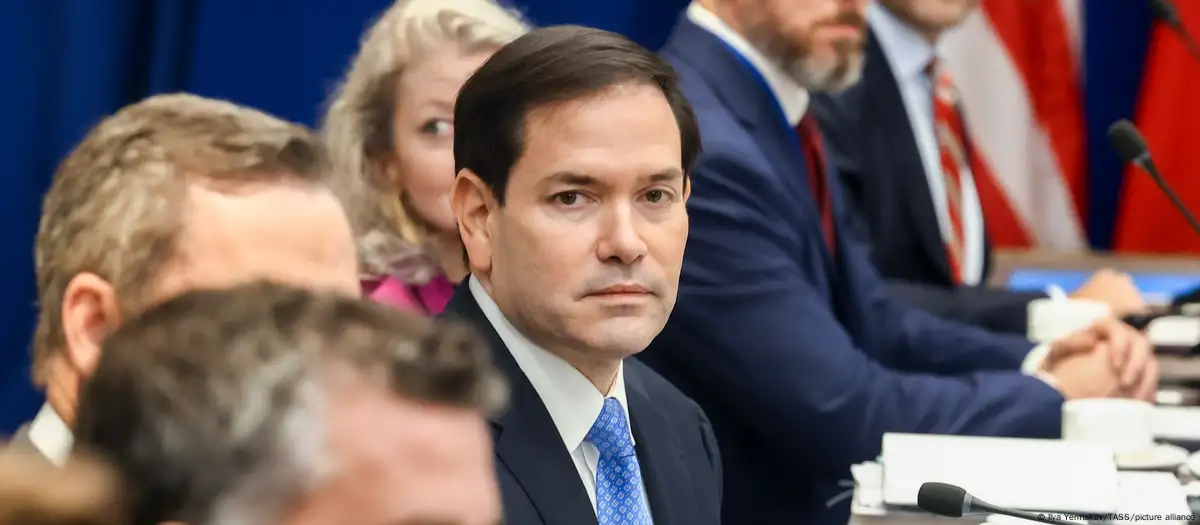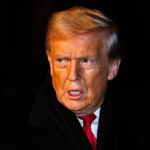
Former rival of the American president, current US Secretary of State brings “America First” to diplomacy and has become the main spokesperson for sanctions against Brazil. Scholarship holders celebrate nomination.
The main spokesperson for the cascade of American measures imposed against Brazil since July, the US Secretary of State, Marco Rubio, was chosen by President Donald Trump to negotiate the tariffs imposed on Brazilian products.
The call between Trump and Lula last Monday marked a change in tone in the American president’s rhetoric towards Brazil. Previously, he harshly criticized the Brazilian government and judiciary as a way of supporting former president Jair Bolsonaro. Now, he claims to see “chemistry” in the relationship with Lula, describes the dialogue as positive and says he is willing to hold new conversations.
On the Brazilian side, the Minister of Foreign Affairs, Mauro Vieira, the Minister of Finance, Fernando Haddad, and the Vice President, Geraldo Alckmin, will be responsible for negotiating the relief from the 50% tariffs imposed on national products, in addition to trying to reverse the American offensive against Pix and the regulation of social networks. The Brazilian government is also interested in the White House suspending restrictions applied to authorities, such as the financial sanctions that affect Federal Supreme Court (STF) minister Alexandre de Moraes.
The impasse over the extent to which the US can give in to these demands must fall on Rubio, whose choice, natural for his position, was celebrated by Bolsonarists. For federal deputy Eduardo Bolsonaro, for example, the presence of the head of American diplomacy at the negotiating table was a “great achievement” for Trump.
On the other hand, in several statements to the press, special presidential advisor Celso Amorim stated that Rubio’s profile does not concern the government and that the secretary will follow Trump’s guidelines.
Spokesperson for sanctions against Brazil
The son of Cuban immigrants, Rubio is known for adopting a more conservative speech and a hard-line stance in international dealings. Since assuming the role, equivalent to Brazil’s foreign minister, he has been the most vocal member of the government to endorse sanctions against countries run by left-wing politicians.
It was Rubio himself, for example, who announced Moraes and his wife, Viviane Barci, as targets of the Magnitsky Act, which imposed American sanctions on the couple. At the time, he said that Moraes “created an apparatus of persecution and censorship that violates Brazilian fundamental rights”.
In August, Rubio also restricted travel and accused members of the Brazilian government of being complicit in a “forced labor export scheme by the Cuban regime” due to the implementation of the Mais Médicos program in the country.
After the trial that convicted Bolsonaro of a coup d’état and other crimes, Rubio took to social media to promise that the US would “respond appropriately” to the “witch hunt” against the former Brazilian president.
Former senator was chosen by Trump to lead discussions with several countries, such as Qatar, Panama, and Russia | Nathan Howard/REUTERS
“America First” in international relations
Before his appointment, Rubio was already known for his harsh criticism of China, the Cuban government and unwavering support for Israel. In 2020, Beijing even imposed sanctions against him due to his stance on pro-democracy protests in Hong Kong. However, in the past, he defended a more “traditionalist” and assertive foreign policy for the United States in relation to the country’s political rivals.
More recently, however, Rubio has begun working to implement Trump’s “America First” approach to diplomatic relations, with the responsibility for transforming Trumpist rhetoric into a political agenda. For example, the idea of occupying Gaza or claiming Greenland.
He was also sent to Panama to announce Trump’s promise to “recover” the Panama Canal and managed to pressure the country into undoing agreements with China. In March, after a discussion between Trump and Ukrainian President Volodymyr Zelensky, he went to Saudi Arabia to lead dialogues with Russian counterparts, even though in the past he had defended the severing of relations with Moscow and called Russian President Vladimir Putin a “thug”.
Rubio also played a leading role in the controversial immigration crackdown in the United States, securing a deal to send alleged gang members to a high-security prison in El Salvador and revoking thousands of student visas, many after the foreigners participated in protests against Israel.
From Trump’s former rival to main ally
Rubio served as a senator from Florida between 2010 and 2025, the year in which he assumed one of the most important positions in the White House.
In 2016, he ran for the Republican Party against Trump himself, to whom he is now loyal. At the time, they exchanged barbs in debates, with Trump calling Rubio “Little Marco” (“Little Marco”) and a “con man” for missing votes in the Senate. Rubio, who also accused Trump of being a “con man” and mocked the size of the then businessman’s hands.
At the time, Rubio also attacked Trump for hiring immigrants to work in his businesses, whose vacancies “could have been filled by Americans”. He also said that Trump should be declared ineligible because he received support from a former leader of the Ku Klux Klan.
Rubio later stated that these comments were made in the context of a competitive primary, comparing himself to a boxer punching an opponent in the ring. “It doesn’t mean you hate the guy, but we were competing for the same position,” he told American broadcaster CNN at the time.
Originally published by DW on 10/07/2025
Source: https://www.ocafezinho.com/2025/10/08/quem-e-rubio-escalado-por-trump-para-negociar-com-o-brasil/

